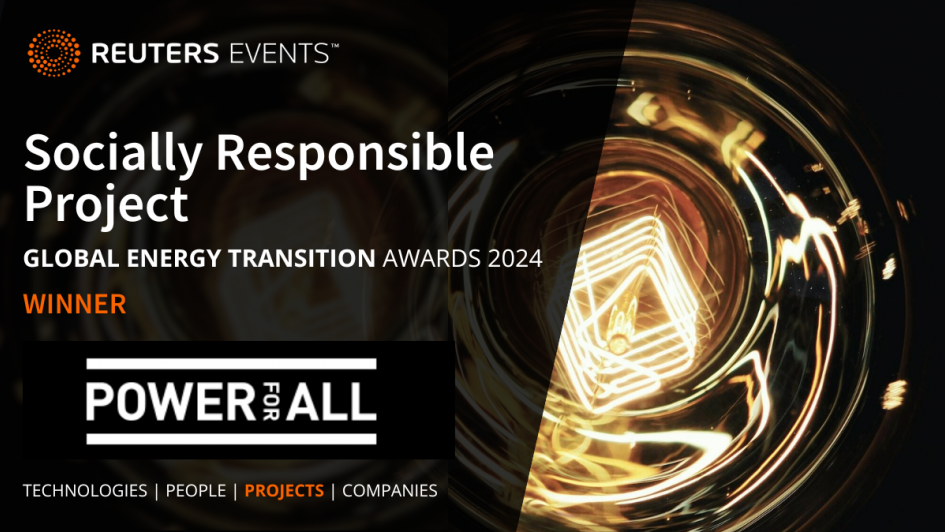The groundbreaking Utilities 2.0 initiative continues to win accolades. Last week, the Twaake Project received the Socially Responsible Project Award at Reuters' Global Energy Transition 2024.
Power for All’s Utilities 2.0 Twaake Project, an initiative to accelerate energy access by integrating Uganda’s central utility with the decentralized renewable energy sector, was selected from over 500 entries for outstanding social impact. The Twaake Project connected over 300 new customers and created 60 new businesses in just a handful of weeks, demonstrating how collaboration can end energy poverty faster.
The Utilities 2.0 proof of concept could not have come at a more critical time: For the first time in over a decade, the number of people without access to electricity actually increased. With business-as-usual continuing to leave nearly 1 billion people in the dark, disruptive approaches to electrification like Utilities 2.0 are needed to radically reduce the energy access timeline.
The Twaake project showcases the substantial progress that centralized and decentralized energy providers can achieve in ending energy poverty faster through collaboration. In addition to the Reuter’s award, the proven approach of Utilities 2.0 has been recognized with several international awards for driving energy systems change: the 2023 Ashden Award in Integrated Electrification, a finalist in the 2023 Microgrid for Good Award, the 2022 Real Leaders Eco Innovation Award, and ESI Africa’s 2022 Africa Energy Elite.
Watch an overview of the Twaake Project.
This project took a virtual village. It was made possible by the hard work and dedication of our implementation partners East African Power, EnerGrow, Equatorial Power Ltd., and Umeme Ltd.
In addition, thank you to our dedicated partners for demonstrating that collaboration and innovation in energy supply are essential to ending energy poverty faster: Africa Minigrid Developers Association (AMDA), CLASP, CrossBoundary Group, Duke University, ENGIE, Uganda’s Electricity Regulatory Authority, The Global Energy Alliance for People and Planet (GEAPP), Makerere University, Uganda’s Ministry of Energy and Mineral Development, Nithio, NXT Grid, Open Capital, The Rockefeller Foundation, Rocky Mountain MicroFinance Institute, Uganda Off Grid Energy Market Accelerator, University of Massachusetts Amherst, and ZOLA Electric.
Most importantly, thank you to all the villagers in Kiwumu, Wakiso District, Uganda, who embraced the productive use of energy.
Learn more about Utilities 2.0 on The Energy Gang podcast.
